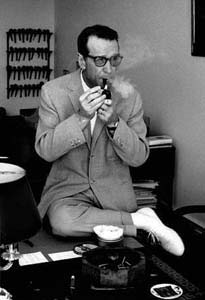A Quote by David Benioff
A certain luxury when you get to writing a novel is to have the space to have your characters just banter.
Related Quotes
You honor your writing space by recovering, if you are an addict. You honor your writing space by becoming an anxiety expert, a real pro at mindfulness and personal calming. You honor your writing space by affirming that you matter, that your writing life matters, and that your current writing project matters. You honor your writing space by entering it with this mantra: “I am ready to work.” You enter, grow quiet, and vanish into your writing.
There's a certain amount of pressure that goes with writing superhero characters, especially characters that are beloved to audiences. You know that you're always writing into a certain amount of expectations and into an existing fandom, and I try to take the pressure of that in when I first accept a project and then I try to push it aside as much as possible and just focus on the story that I want to tell. It's definitely a little more pressure than writing something of your own, from your own brain, and creating those expectations from scratch. But I also like the challenge of it.
Introduce your main characters and themes in the first third of your novel. If you are writing a plot-driven genre novel make sure all your major themes/plot elements are introduced in the first third, which you can call the introduction. Develop your themes and characters in your second third, the development. Resolve your themes, mysteries and so on in the final third, the resolution.
Writing has to do with truth-telling. When you're writing, let's say, an essay for a magazine, you try to tell the truth at every moment. You do your best to quote people accurately and get everything right. Writing a novel is a break from that: freedom. When you're writing a novel, you are in charge; you can beef things up.
If I'm writing a novel, I'll probably get up in the morning, do email, perhaps blog, deal with emergencies, and then be off novel-writing around 1.00pm and stop around 6.00pm. And I'll be writing in longhand, a safe distance from my computer. If I'm not writing a novel, there is no schedule, and scripts and introductions and whatnot can find themselves being written at any time and on anything.
Writing fiction lets you be a little more emotional and unguarded, a little freer. Writing fictional characters is also really different from writing about real people. In nonfiction, you can only say so much about the people you interact with. After all, they're actual people, their version of their story trumps yours. In a novel, you can build a character, using certain parts or impressions of someone you know, and guessing or inventing others, without having to worry that your guesses or memories or inventions are wrong.
The quality of your life was determined by the quality of your service. I'm attracted to characters who have a higher calling, who want to serve in ways where you get beyond the comfortable service and you get into the space of the sacrificial. And I really am attracted to characters who just want to do things that brighten the world. That probably is the central aspect of my personality.
Music and writing do fold together in the sense that you have to have a certain level of skill in order to execute your ideas and you need a medium. The idea of improvisation is one that many writers fall into, and I improvise a great deal when I'm writing, but there's a structural framework that I'm working around, and that takes more time than the actual writing. Once the characters get to yapping and talking, they'll move from one room to the next, and I just have to make sure that the house is built. That's really hard, that's the kind of thing that sits with you all day long.






































